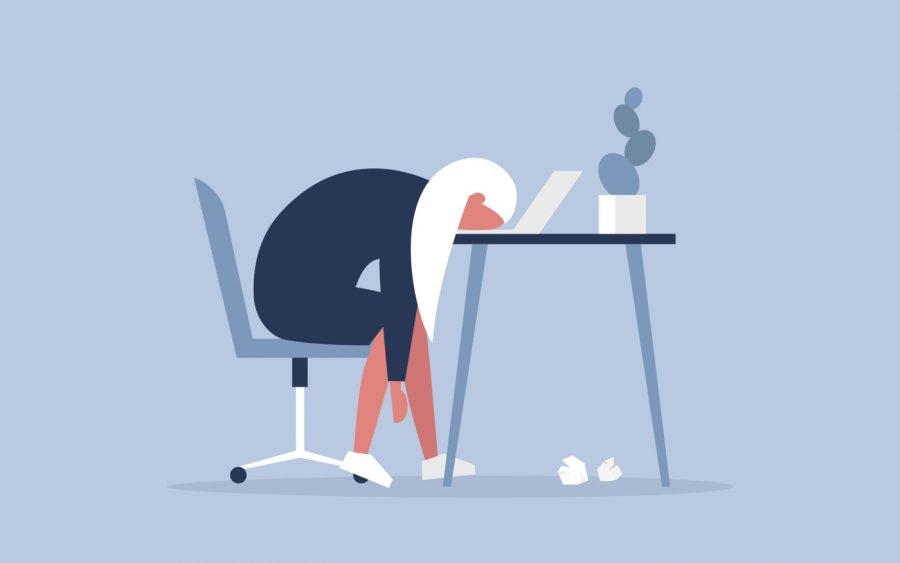
COLLEGE BURNOUT
The term “burnout” is often referenced in stressful times, the most common being college burnout. Burnout in college is a long period of excessive exhaustion that most frequently results in a drop in academic performance. With consistently high levels of stress and overwhelming job demands, unfortunately, college burnout is experienced by almost every student throughout their academic career.
Like most cases, the environment you surround yourself in can also make or break you. For example, the people you surround yourself with, priorities, poor sleep habits, nutritional factors, and not having a healthy support system can lead to quicker and more dangerous burnouts.
HEALTH RISKS
Although being tired, stressed, and feeling overwhelmed is extremely common as a college student, burnout can lead to serious long-term health problems and should not be dismissed so quickly. The term “burnout” is often used informally to describe feelings of stress and exhaustion; however, it may be more difficult to recognize.
Students who are experiencing burnout typically continue pushing forward when they are already exhausted, rather than reaching a breaking point and seeking guidance. When a student has experienced burnout for a long period of time, this can lead to chronic depletion of energy can result in depression, fatigue, infections, a weakened immune system, and much worse.
SYMPTOMS
It can be tough to truly identify burnout from the stressors and adjust to the pressures and obligations that come with college. Dr. Lee Keyes received his doctorate in counseling psychology and worked at the University of Alabama where he served as a staff psychologist and executive director of the Counseling Center.
Dr. Keyes most commonly recognized the signs of college burnout with students having a hard time letting go of previous goals, feeling like a failure, losing interest in social activities, having difficulty meeting deadlines, and feeling unmotivated to do even the simplest daily tasks.
5 TIPS TO PREVENT BURNOUT
College is an extremely stressful time, but with the right support system, and accepting life as it comes, it can also be the best time of your life. Burnout can easily be turned around before it could lead to serious health issues. The first step is recognizing the signs. Your body will tell you when you are stressed, your job is to simply listen to those warning signs!
- HEALTHY DIET
Diet plays a huge role in how your body functions and carries out daily tasks. Think of your body as a car. If you put cheap gas in your car – sure the car may run… but how well and for how long?
- ACKNOWLEDGING THE SYMPTOMS
What are the first few signs of burnout? How can you make the change you need to improve your daily life?
- SLEEP
SLEEP! According to the UNC and research from all over, a college student should be getting anywhere between seven to nine hours of sleep per night. Make it happen!
- GO OUTDOORS
Many studies have been conducted that have all proven that being outdoors can significantly reduce psychological stress.
- GET HELP
It’s okay to not be okay. Every college student should be aware of their counseling center’s resources and support groups for students going through the same thing!